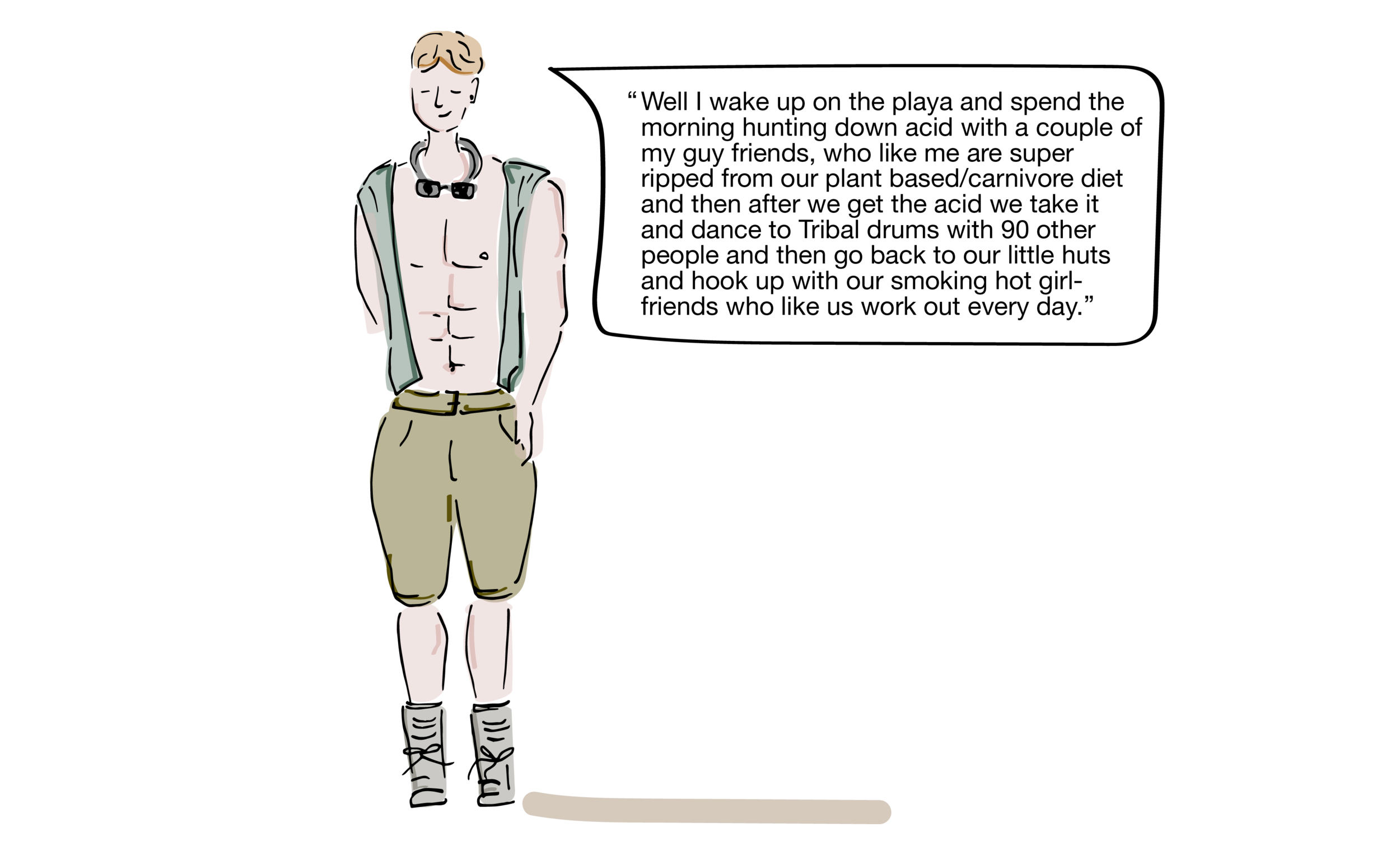Our Burning Man Future
For basically all of human history, we lived in tribal units that were roughly 150 people in size (also known as Dunbar’s number). These 150 people roamed the earth together, sharing resources, fighting the elements and surviving danger for tens of thousands of years.
Then a few thousands years ago, you had the agricultural revolution, tribal units grew more complex. Farming gave us subdivision of labor and the rise of cities. You went from doing everything to doing one very specific thing and you went from being with your extended family all the time to a much larger community where you were often unknown.
The industrial revolution still furthered that complexity in countless ways.
And even further still by the digital age.
Outside of small hunter gather communities still stuck in our pre-historic past (of which some still exist in remote areas), few humans today are members of an authentic tribe.
We instead exist within a milieu of differing cultures and peoples and religions in large and growingly impersonal metropolises with little permanent connection to the land and people that surround us.
Maybe you view this as wonderful – and we can all agree that the creature comforts and safety of the developed world are indeed a marvel. But the reality is that something about the way it all is structured is leaving a chasm in people’s psyches and that chasm is growing.
We see that chasm in the deaths of drugs and despair, in general depression and anxiety and the many unhappy lives prosperous modern humans lead.
Our happiness has not exploded concurrent with our GDP. Even though we have solved all of the great survival problems, there is still an existential ache. And that ache, has everything to do with the tribe – or lack thereof – in modern life.
While elements of the tribe have been lost through each of these transitions from the Neolithic Man to the Ag Man to the Industrial Man, it is in this final transition from Industrial Man to Digital Man – that the losses have horrifically accelerated.
Industrial Man at least had a religious affiliation and community that kept him going – Digital Man rarely goes to church or temple anymore and is barely aware of the religious heritage that his ancestors lived and died by.
Industrial Man had ethnic enclaves and close knit communities – Digital Man lives in a world often totally separate from familial relations.
Industrial Man had a town center where he walked around and ran into his friends and encountered people more than once – the Digital Man shops at Wal-Mart or orders things online and has a series of impersonal interactions every day.
These are just a few of the countless ways the Digital Man has lost his tribal connections. COVID has in turn taken whatever tenuous connections Digital Man had to a community and just laid waste to them. Now completely bereft of any semblance of tribe, Digital Man is slowly going insane. He desperately searches for community wherever he can – and the only place he is finding it is online and sometimes in increasingly darker corners of it.
If you want to understand what ails present day America – be it the opioid crisis or the rise of lunatic identity politics and fringe movements or even Burning Man – it can all be traced back to this tribalism deficit – and our inability to mentally cope with that.
Take Burning Man. What is Burning Man but an attempt by Digital Man to re-create a meta version of Neolithic Man’s existence, a bunch of people collectively surviving together and sharing their resources and experiences with one another, far removed from civilization.
Burning Man might seem insane, but it is in many ways a rational and very human response to this problem, satisfying an almost spiritual craving folks have for community. But alas it is only a week long – and then folks go back to their regularly scheduled programing of dreary office parks and living untethered to any community or tribe.
We are entering a new phase of capitalism – one that is increasingly recognizing some of the negative externalities created by the first phase.
Take energy. Capitalism 1.0 dictated that we just needed to find and exploit energy sources. Capitalism 2.0 is dictating that we have to still find and exploit energy but we have to also account for the environmental costs, carbon or otherwise therein.
Community and tribe should be a part of this second phase of capitalism.
Capitalism 1.0 built soulless suburbs and office parks and big box retailers that maximized economic efficiency but came at the cost of community and tribal connections.
Capitalism 2.0 needs to recognize those costs and find a way to rectify them. This could mean any number of things, but it probably starts with building denser, walkable communities and encouraging organized group activities that get people who are online, off line. The only way we are going to really psychologically heal ourselves in the long run, especially after COVID, is if we bring back churches and community bowling and also large dance festivals where everyone is on acid.
People need to be together and at the very least party again - if they can’t Digital Man will truly lose his mind.







